Juicing At Home vs. Juice From The Health Food Store
JUICING AT HOME vs. JUICE FROM THE HEALTH FOOD STORE (ISSUE 62)
By Diane Gold
Let’s start with a nice quote from The American Cancer Society.
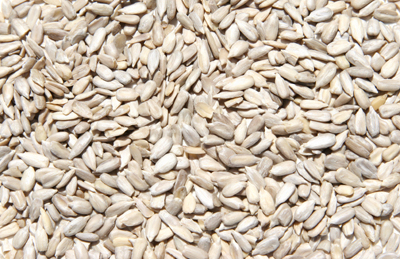 “…whether organic foods carry a lower risk of cancer because they are less likely to be contaminated by compounds that might cause cancer is largely unknown,” but “vegetables, fruits, and whole grains should form the central part of a person’s diet, regardless of whether they are grown conventionally or organically.”
“…whether organic foods carry a lower risk of cancer because they are less likely to be contaminated by compounds that might cause cancer is largely unknown,” but “vegetables, fruits, and whole grains should form the central part of a person’s diet, regardless of whether they are grown conventionally or organically.”
The compounds in this quote are the pesticides, herbicides and artificial additives that go into our food that might be carcinogenic, the testing of which has had definitive negative outcomes that are largely untraceable in mainstream media lest the publicity poorly impact the financial success of the food manufacturing industry.
 ORGANIC, NATURAL OR VEGAN?
ORGANIC, NATURAL OR VEGAN?
The above info leads us to speak about organic food. In order to do so, we have to clarify how organic, natural and vegan are different. One is not the others, and the others are not the 1.
ORGANIC
Organic food refers to how the food is produced and that it has been produced without pesticides or chemical fertilizers. Unfortunately, foods that are 95% organic can be labeled organic. Also, very unfortunately, pesticides that are “not synthetic” are permitted to be used on products that are labeled organic. This includes petroleum oil as a pesticide, since this is a naturally occurring substance that comes from decayed carbon-based life forms. Lime, sulfur, tobacco water and household natural dish soap are also used as pesticides in organic food as well as a variety of other materials that may not be completely safe.
 It’s difficult to farm produce without encountering nature’s little bugs that want to eat. In order that these natural organisms don’t eat all the produce, some form of protection in the form of a pesticide, either non-synthetic in organic food or synthetic in non-organic food, must be used.
It’s difficult to farm produce without encountering nature’s little bugs that want to eat. In order that these natural organisms don’t eat all the produce, some form of protection in the form of a pesticide, either non-synthetic in organic food or synthetic in non-organic food, must be used.
Except for the few organic farmers who are using the food chain successfully (such as spraying a blend of garlic, onion and red pepper, water with a touch of vegan, non-chemical, non the degreasing, mild dish liquid).
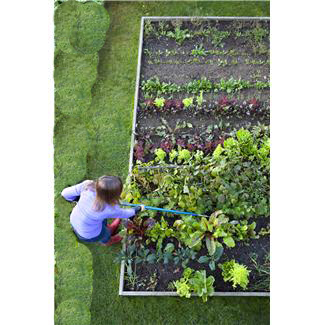 The best way to get our food is to grow our own. Not practical for most of us, and this leaves us with having to dispose of the solids from our juicing. I have happily just connected with a local organic farmer who is willing to take my food waste since I am not a composter. WHOO-HOO! This succeeds in satisfying the responsibility we all have to diminish valuable waste. I am by no means taking a large step toward helping the planet in this regard, but I have taken 1 step.
The best way to get our food is to grow our own. Not practical for most of us, and this leaves us with having to dispose of the solids from our juicing. I have happily just connected with a local organic farmer who is willing to take my food waste since I am not a composter. WHOO-HOO! This succeeds in satisfying the responsibility we all have to diminish valuable waste. I am by no means taking a large step toward helping the planet in this regard, but I have taken 1 step.
Call your local farmer to do the same, or see if your community has a compost drop off.
When I lived in Greenwich Village in the 70s, (yes, that’s right, the 1970s) the owners of a demolished building across the street who knew they were not going to build for 5 years, gave our community the rights to grow veggies and flowers on the land. This created happy socialization and good solid productivity as well as beauty on a construction site.
There are also window box gardens, for those with no land or outside water supply.
NATURAL
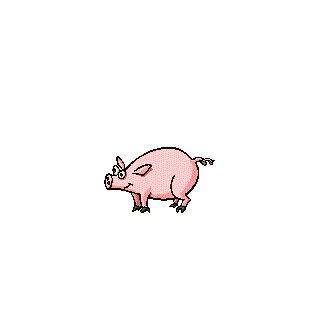 People often misunderstand the word “natural.” Anything that is processed minimally and does not contain a substance that does not occur organically (this is the scientific reference to organic meaning the way it grew) in the food is natural. That means pig’s feet are natural, fish broth is natural, apple sauce that does not have other ingredients that must be identified is natural.
People often misunderstand the word “natural.” Anything that is processed minimally and does not contain a substance that does not occur organically (this is the scientific reference to organic meaning the way it grew) in the food is natural. That means pig’s feet are natural, fish broth is natural, apple sauce that does not have other ingredients that must be identified is natural.
The word “natural” is not regulated, other than when it refers to meat or fowl. The word “natural” doesn’t identify much. Often, it confuses the public rather than providing any information about healthy food.
VEGAN
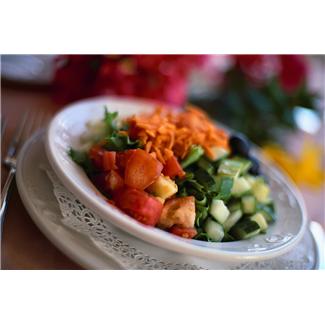 A much misunderstood word, vegan refers to a type of eating that does not include using animal products. That means no honey, no eggs, no dairy, no milk ingredients, anywhere, including in cake or bread or broth, no fish, no poultry, no meat. It does not mean organic. And, as we have mentioned, the word natural is non-specific.
A much misunderstood word, vegan refers to a type of eating that does not include using animal products. That means no honey, no eggs, no dairy, no milk ingredients, anywhere, including in cake or bread or broth, no fish, no poultry, no meat. It does not mean organic. And, as we have mentioned, the word natural is non-specific.
ORGANIC, NATURAL, VEGAN SUMMARY
The words are not the same. It’s important to remember that, even though the advertisers and media groups prefer that we would not.
___
Now back to our original issue: is it better to have juice at home or at the store?
JUICING OUT CONS
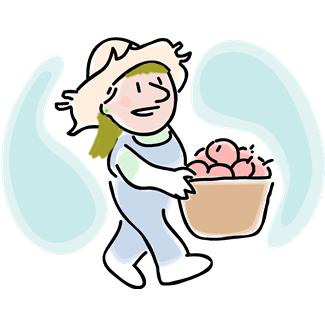 1) Whole Foods, for 1, talks about all the organic fruits and veggies they supply. Their produce changes from day to day, based upon availability and growing season, and it’s easy to confuse the physical locations of organic and non-organic food (termed “conventional food” so that the negative connotation from the word “non” is avoided). Their juice bar, as of the writing of this article, does not label whether their juice is or is not organic, so that the less informed customers will assume the juice is organic.
1) Whole Foods, for 1, talks about all the organic fruits and veggies they supply. Their produce changes from day to day, based upon availability and growing season, and it’s easy to confuse the physical locations of organic and non-organic food (termed “conventional food” so that the negative connotation from the word “non” is avoided). Their juice bar, as of the writing of this article, does not label whether their juice is or is not organic, so that the less informed customers will assume the juice is organic.
This is not transparent, which goes against the philosophy of an ideal food provider that values food education. All other stores do similar things; I just happened to ask Whole Foods, which is why I am mentioning it by name. So, there is no education happening when purchasing juice at the local health food store, if there is not full disclosure.
2) The next thing about having juice out is that it costs more than it would if we made it at home.
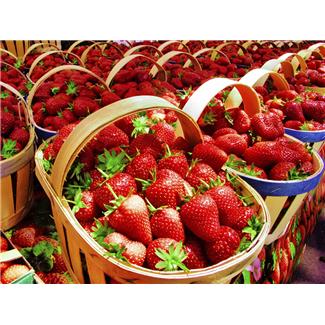 3) We don’t know how fresh the ingredients are that are being used in store-bought juice. Did you know that fruits and veggies only retain their nutrients for a set amount of days? And when some stores, usually supermarkets, get their produce truck; the produce is usually many days or even weeks old?
3) We don’t know how fresh the ingredients are that are being used in store-bought juice. Did you know that fruits and veggies only retain their nutrients for a set amount of days? And when some stores, usually supermarkets, get their produce truck; the produce is usually many days or even weeks old?
How many times have you asked the produce manager in a supermarket how old a particular vegetable was? Do you recognize the answer,
“Just got the truck this morning, and I just put ’em out.”
The irrelevance to an appropriate answer might shock us.
JUICING OUT PROS
1) A benefit of having juice out is that no juicer is needed.
2) When we juice out, we save on our water and electricity bills: electric to run the juicer, water to wash the juicing ingredients at the beginning and the juicer, itself, at the end.
3) Another benefit of juicing out is that we don’t have to have the ingredients in our refrigerator.
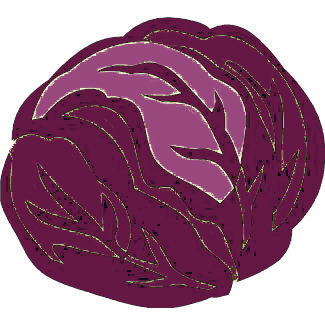 4) Finally, having someone serve us means no work for us, and yes pampering for us. Both great. Unless we think of juicing as a fun, joyous activity, which it can be. I just juiced some red cabbage. The color that came out of the juicer made me massively happy instantly. The color seemed so alive that it was much worth any “work” I had to do.
4) Finally, having someone serve us means no work for us, and yes pampering for us. Both great. Unless we think of juicing as a fun, joyous activity, which it can be. I just juiced some red cabbage. The color that came out of the juicer made me massively happy instantly. The color seemed so alive that it was much worth any “work” I had to do.
JUICING AT HOME CONS
1) We have to plan ahead and buy the juice that we want without purchasing too much that some will spoil before we use it or too little that we’ll have to go out to get more in order to finish our juicing process.
2) We have to buy a juicer. This is costly.
3) We have to wash the juicer ourselves and compost or dispose of the fruit or vegetable remains. This means work.
Although I’ve always cleaned the juicer immediately after using it, I’ve heard that it can be very uncooperative if any length of time passes between use and cleaning.
JUICING AT HOME PROS
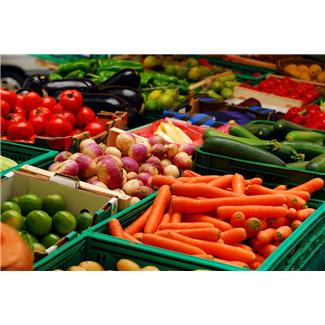 1) We know whether we have purchased organic produce because we inquire when we buy, and we use grocers we can trust. Hopefully, the suppliers of these grocers we trust follow organic protocol in their farming.
1) We know whether we have purchased organic produce because we inquire when we buy, and we use grocers we can trust. Hopefully, the suppliers of these grocers we trust follow organic protocol in their farming.
2) We know how old the produce is since we can see the new sitting next to the old in most markets.
3) We can have juice when we want, in the combination we want, more economical than juicing out.
4) We take responsibility for our own health by juicing at home. Plus, juicing is more likely to become a frequent habit when we are hands on and do it ourselves.
 5) We can socialize with our family or relax in our own environment as we drink.
5) We can socialize with our family or relax in our own environment as we drink.
CONCLUSION
As I see it, it’s better to juice at home because we are taking a good part of the responsibility for our own bodies. Getting juice for regular juicing outside the home leaves too much to chance. It certainly makes sense to get fresh juice out of the home some of the time, especially when traveling. But, remember to ask whether the juiceria supplies organic produce and know that when the answer is that it is organic, there are many variations on what constitutes “organic.”
ACTION STEPS
1) Invest in a juicer, even a basic one.
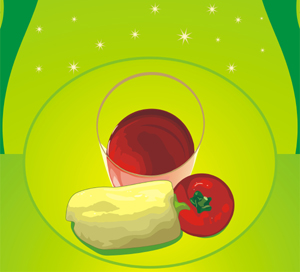 2) Decide on a particular juice that makes your mouth water, and experiment with combinations, like PEPPER–TOMATO.
2) Decide on a particular juice that makes your mouth water, and experiment with combinations, like PEPPER–TOMATO.
3) Go shopping for juice ingredients after you have had a meal, so that, when you shop, you are not hungry. That way, you will have a less emotional time choosing which fruits and vegetables to get for juice.
4) Check out the website whatsonmyfood.org. When we click on a food, it tells us the average amount of pesticide that is in it. It’s scary, but it’s telling. And we should be aware of what pesticides we are ingesting.
5) Find your favorite food, and leave a comment at the bottom of this link’s page to let us know how many pesticides are in it and whether you are surprised or not.
FEEDBACK
Please leave a comment and LIKE.
DIANE GOLD, AUTHOR
Diane Gold, Founder of Warriors of Weight, Moms For Healthy Daughters, is a mentor in tai chi, kung fu and meditation, a music, fitness and stress expert, dedicated mom, studying plant-based nutrition.
She feels fortunate for her life. She says,
“Those of us who know how beneficial juicing is are fortunate. To receive the maximum reward for our efforts, it’s always a good idea to get the most out of the least work so that we will have energy left for other productive action.
“Many of us know we can get juice at the health food store. Now that we are more informed about what could go into our juice, we can be more investigative about what we are actually drinking. This process improves the service the retailer is giving because their image is at stake. They want it known that they are informative to their customers. They also want it known when their juice is organic.
“Happy juicing and using this knowledge for your health.”







